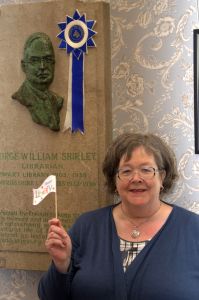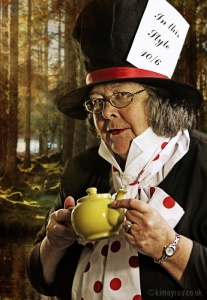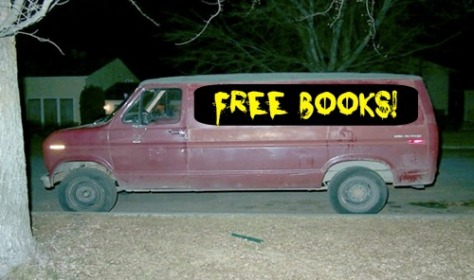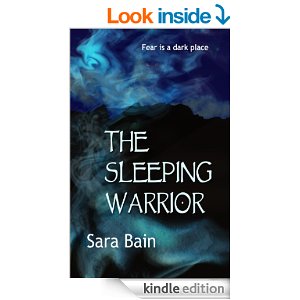 Urbane Publications is determined to ‘become a leading independent publisher and a genuine positive choice for authors and readers alike’, says director Matthew Smith. In the second part of our in-depth look at the collaborative publishing option, Urbane answers some of the most obvious questions from authors who are now realising that the Third Way is a viable solution to the industry’s future.
Urbane Publications is determined to ‘become a leading independent publisher and a genuine positive choice for authors and readers alike’, says director Matthew Smith. In the second part of our in-depth look at the collaborative publishing option, Urbane answers some of the most obvious questions from authors who are now realising that the Third Way is a viable solution to the industry’s future.
According to the British Advertising Standards, the definition of a vanity publisher is ‘any company which charges a client to publish a book…’. What, in your opinion, is the difference between a vanity publisher and a collaborative publisher like Urbane?
I think one of the key differences is that vanity publishers tend to provide a fairly rigid and limited service to turn an author’s words into book form (either physical or digital). That in itself is not a ‘bad’ thing, it’s simply another form of getting a book published and for some authors might be the perfect route – it means they have control (albeit within a range of limited options) and see their words in print. But I do think vanity carries a whiff of negativity because it has associations of a ‘last resort’ choice, and, sadly, many of the services tend to be very poor and rather expensive. In many cases it’s a ‘pay your fee, get this limited solution’ option.
The difference with Urbane? Firstly, the author isn’t a client; the author is a partner who plays an active and integral role in every aspect of the book’s life, from initial design to sales and promotion and beyond. Secondly, we don’t charge to publish a book, there’s no ‘set menu’ of services. Like any traditional publisher we pick and choose the projects to publish that we feel have potential and we then sit down with the author and work out exactly what they want to achieve with their book. The upshot is a project that works for us and the author – and more importantly the reader.
Let’s be clear – authors don’t pay for a service, but they may contribute to certain clearly defined costs of the production or promotion if it is appropriate for their particular project. For example, Urbane is very unlikely (at least at this stage in its existence) to publicise a book via poster campaign on the London Underground, but if an author wants to fund that promotion then it will be part of the agreement we put together. I could talk about this at length but honestly the best way to discover how we work is to drop us a line. Every author is different, every project is different and we develop individual, bespoke contracts, opportunities and strategies for each and every one.
This isn’t about providing a production service. I could do that, I could take advantage of the self-publishing boom, set up a system and charge authors a healthy fee to throw their unedited words together between some covers. But I think there’s a better way, a route that provides authors with all the benefits of publishing (an engaged editor, script development, knowledge, design, route to market, promotion etc) but with creative and commercial engagement at every part of the process. Every aspect of the project is a shared experience and authors choose to engage as much or as little as they want. Every project is unique – I can’t stress that enough – and every project is developed on and around its merits and strengths and the strengths of its author. No pigeon-holing here, the aim is to innovate, challenge, excite – to establish new voices and give readers the opportunity to discover new talent.
Why the need for collaborative publishing?

Matthew Smith, Urbane Publications
In short, because authors should consistently be at the centre of the publishing experience, from initial discussion and on throughout the life of the book. Every single project is unique and every author plays a key role in not just delivering a manuscript but bringing it to life. For too long many in the publishing industry have been treating authors as a commodity, a deliverer of content, part of a process not the key driver of the publishing experience. This seems particularly daft when the routes to market have changed so much, are so varied and competitive, that the same publishers then come back to the author with a finished product and ask them to market and sell it. No wonder so many authors self-publish.
Authors are the most valuable piece of content. The aim is shared goals from the outset – what do we want, how can we make it happen, how do we realise success? I’ve worked with a number of authors who, quite rightly, are saying ‘what are you going to do that I can’t do myself’? I’m not convinced publishers are coming up with the right answers by sticking to what they know. This is about working in an engaged way with authors to be entrepreneurial, brave, agile, innovative – and to enjoy it!
There is no ‘set’ way of doing things. One book might excel as a digital only book; another might sell better as individual chapter downloads; another as a high-priced, niche hardback. This isn’t just about taking on ‘safe’ projects, it’s about getting words in front of as big an audience as possible in whatever form and format they want them. In theory Urbane is an independent publisher. But not because it’s going it alone. Far from it. You see everything that matters about publishing is based on collaboration, on partnering with others to reach your goals, to pursue dreams. It might sound romanticised and idyllic, maybe even naïve, but this is where publishers have got to go. They’ve got to remember what matters not just to them, but more importantly to those who write and those who read. Otherwise what do we add? What do we offer?
As a publisher I want to share my ideas, my experience, my creativity, but I don’t want to just impose it, it has to be part of the author’s vision as well. Everything shared, everything a collaboration, everything developed together. There’s a lot to be said for believing in what you do – if you both believe it then anything is possible. It doesn’t guarantee success of course. Just because a book or a piece of content is developed in perfect publisher/author harmony doesn’t guarantee discoverability, profile, sales, commercial returns. But what it does mean is you can be honest, you can be agile, you can respond quickly and creatively to every challenge, you can treat every single project as the ‘everything’ and you can work together to find ways to make it happen.
Who are Urbane and what experience do the staff have of the publishing industry?
Actually Urbane are the authors and the readers, that’s our ultimate aim. Rather than build a publishing brand first, we’re building author brands and developing our own alongside their success. As for Urbane staff it is essentially me and a small and very experienced team of freelance designers, editors and proofreaders. As for me, I’m a publishing professional with over 20 years’ editorial and content development experience. From department manager at Waterstone’s, to commissioning editor at Routledge, senior publisher at Hodder, an editorial director at packager Arcturus, through to publishing director at both Pearson and Kogan Page, I’ve been around books and content in all genres and forms. At last count I’ve published over 3,000 books (and have even written a few that you won’t have seen!). I’m often called a content enabler, and I always try to put care, content and collaboration at the heart of every project, from the editor’s relationship with an author, to project development with leading global corporations. In the future the aim is to recruit as we grow, but everyone associated with the company has to have the same belief in care, content and collaboration. And the wonderful aspect to using experienced freelancers is that I can always put the right skills with the right project. And of course I mustn’t forget Tilly the Urbane dog, or Pepper the aloof Urbane cat. Or they’ll get very grumpy.
Who are Urbane authors?
 People with something to say, with a great story or knowledge to impart. Primarily they do tend to be new voices, although I do have some very experienced authors signed for 2015 (can’t reveal too much more just yet). Interestingly, it was suggested on Twitter the other day that I may be sexist, because the majority of authors listed are male. I found that both confusing and amusing – this idea that a publisher pursues a misogynistic strategy! It’s simply the way the projects have come in during the first six months. There are some amazing women signed to the list. But what matters most of course is that the author can’t just write a great book, but that they want to be part of the process and help make it a success. That’s what I look for most, that ability to partner and work with the publisher. I’ve turned down some authors purely because they wanted a service, or expected ‘big six’ success simply by delivering some words. The most successful authors are those who participate, and that’s obvious from the visibility, sales and success of the books published thus far. It’s still early days and the aim is to consider a whole range of projects on their own merits. Over the coming months we will start to hone our lists. The key is that the project has potential – and that the author recognises it as well as us.
People with something to say, with a great story or knowledge to impart. Primarily they do tend to be new voices, although I do have some very experienced authors signed for 2015 (can’t reveal too much more just yet). Interestingly, it was suggested on Twitter the other day that I may be sexist, because the majority of authors listed are male. I found that both confusing and amusing – this idea that a publisher pursues a misogynistic strategy! It’s simply the way the projects have come in during the first six months. There are some amazing women signed to the list. But what matters most of course is that the author can’t just write a great book, but that they want to be part of the process and help make it a success. That’s what I look for most, that ability to partner and work with the publisher. I’ve turned down some authors purely because they wanted a service, or expected ‘big six’ success simply by delivering some words. The most successful authors are those who participate, and that’s obvious from the visibility, sales and success of the books published thus far. It’s still early days and the aim is to consider a whole range of projects on their own merits. Over the coming months we will start to hone our lists. The key is that the project has potential – and that the author recognises it as well as us.
What does Urbane expect of its authors?
Nothing more or less than commitment to the project – on their terms. One of the biggest issues in publishing is the expectation, often from both authors and publishers, that either party is ‘doing that bit’. Collaboration is exactly that – books don’t sell just because they’re published, it’s bloody hard work, and authors have to be fully engaged with their role in that process from the off. If not the partnership won’t work. Just as an author doesn’t want a publisher that simply puts their words into print, a publisher doesn’t want an author who thinks their role starts and ends with providing a Word document (unless of course they make it clear to us that’s what they want!). We expect engagement, excitement, enthusiasm, a belief in their words. Frankly that tends to be a given with nearly every author.
What can Urbane authors expect from their publisher?
Commitment. So many authors have made it clear they’re disappointed with the way they are treated by publishers and agents, even service suppliers. Our interest and input doesn’t end at contract stage, or even at publication, but lasts throughout the life of the book. Authors need and deserve an engaged and positive editorial and publishing experience and that’s what we try and provide. I’m sure some probably wish it was a bit less engaged. Again, some might be cynical but we genuinely care about what we’re doing and each and every project. We want them to succeed, we want to build and develop success, we want to grow with our authors. And to do that we have to be fully committed to the care, content and collaboration ethos. Authors get knowledge, advice, experience and a timely ‘on call’ response throughout their book’s life.
Do you regularly turn down manuscripts?
All the time. Far more than are taken on. The ratio is probably one project commissioned for every 20 turned down at the moment and we’ve only been going full steam for six months. Urbane does receive a hell of a lot of erotica and YA proposals, but these aren’t genres we’re publishing in. We don’t publish children’s books either. However for every project that’s rejected there’s no standard letter, I try to give genuine feedback where I can and advice on how the author can get published. There are even a number of projects we’ve helped secure contracts to get published elsewhere. Why go to this effort? All part of the collaborative process. The publishing world is a fairly small one and if authors are telling a good Urbane story then that is great not just for the company but our books and visibility. Besides, I think if an author goes to the effort of contacting Urbane, and more importantly considers Urbane a worthy potential choice for their project, then the very least they deserve is a personalised response. Let’s be honest, it would be easy to just take on every book and charge everyone £5k to publish. But that wouldn’t be true to our aims and philosophy. The bank manager might prefer it though!! J
How do you market, promote and distribute your titles?
First and foremost through the author’s network. That is always the most dynamic, loyal and enthusiastic audience and ideal for getting the books profile on the rise. But let me make clear that, unlike has been suggested, we don’t just say to the author it’s their responsibility. I think some of the more established publishers have been very guilty of that, particularly as traditional channels shrink and discoverability becomes more and more of a challenge – and a key issue.
Urbane absolutely recognises that sales begin at home, it’s one of the reasons we give the authors such a high return on revenue, but the vital aspect for us is how we build on and beyond that: that’s where the entrepreneurial ideas come in. Frankly we’re constantly trying new ideas to gain profile and visibility and drive sales. As well as trying to drive stock into key channels, we work with PR organisations such as Authoramp and LiterallyPR to drive interest and demand. We set up blog tours; organise author interviews; create reviewer rewards; run free promotions through Shortlist, Female First and Mr Hyde (to name a few); hold launches (the last one was featured in Tatler) and speaking engagements, as well as create strong marketing pieces from bespoke supporting websites and short films to book-led business cards and posters. The list is endless, frankly, and it’s continually growing. Does it guarantee success? No, absolutely not, and any publisher that guarantees you sales is either fibbing or will buy them all him or herself!
One thing I will say is that what counts is persistence. Many publishers do a bit of pre-pub, a bit of profile on publication, but within six weeks the book is forgotten. That’s not the case at Urbane. Books can still sell very strongly, if not more strongly, months after publication, and we work consistently and persistently across the list to keep that profile high on every title. We also try to sell as many books direct as we can rather than relying only on discoverability in the obvious channels. Books are a beautiful, valuable, high quality item and we work on that to drive firm sales that benefit both publisher and author commercially and in terms of profile.
Who are your partners?
Apart from the authors you mean? All Urbane physical copies are distributed through Combined Book Services (one of the biggest distributors in Europe) and we have agreements with the key wholesalers Gardners and Bertrams. I’m delighted to report we’ve also just linked up with IPG in the States to distribute titles across North America. For digital distribution we work with Distee, an innovative platform provided by Autharium. This is a truly global solution and ensures all our titles are available in all the key channels from Kindle, Apple, Google, Kobo and Nook through to key suppliers such as Overdrive (as well as all the ebook retail channels from Waterstones through to Wordery). As for rights, we’ve just linked up with IPR License, so every title is actively promoted through their global networks (55,000 potential rights outlets at last count). It’s taken a few months to get these partnerships in place but momentum is really beginning to build now they’re up and running. The next step is to build more sales opportunities in specific regions, particularly Australasia, South Asia, SA and the Middle East.
Granted that your authors require a diversity of services that will affect the price of a package but how much on average will it cost an author to publish their work through Urbane?
It could be anything from £0 to whatever the author wants to contribute (depending on the project and its aims). And the return is directly linked to that so royalties range from 30% through to 90%, with the average being 50%. Looking through the existing and signed projects, the most any author or organisation is contributing is £3,000 – and that is to pay the print costs on the first print run. Urbane NEVER charges for time, input or editorial services for the books it signs. Any costs that are agreed are always clearly assigned to a physical outlay, such as hiring a PR specialist or contributing to physical print costs. And only ever on the first print run – if a book is successful and goes to reprint the costs are Urbane’s because both parties are then benefitting from the initial investment of time and money. Again, the best way to understand how this works is to send your project to Urbane and discuss it with us.
If success continues to grow, do you think Urbane will evolve into a traditional publishing house?
Only in the sense that we’ll be able to take on far more projects and ideally without any fiscal contribution from authors whatever the needs for their project. But royalties will on the whole remain at a 50:50 split, because we absolutely value the integral role of the author to each project. There are no books without them! To be honest I hate that term ‘traditional’. One of the issues I think the industry has as a whole is that it tries to keep everything in neat boxes – agent route, traditional publisher, self publisher, vanity publisher – success will actually come for the companies that combine all the very best elements of all of them. That’s what we’re trying to do.
What’s in store on your forthcoming list?
There are a number of popular business titles signed up, including the amazing Wicked and Wise series with the Coherence consultancy group. And we’re continuing to grow the fiction list quickly during 2015, with the very exciting Close of Play by PJ Whitely and Beauty, Love and Justice by Alcina Faraday both publishing in the early spring. There are also some very high profile authors signed for 2015 – I’m afraid I can’t reveal details until the contracts are official – but their presence on the list will really emphasise our determination to become a leading independent publisher and a genuine positive choice for authors and readers alike.
In what way can Urbane connect authors with readers to maximise sales?
We’re continuing to look at a number of ways to do this. The first is to simply try and sell more books and ebooks direct to put the authors directly in touch with the audience and try and build a community of excited and enthusiastic readers around our authors and books. Reviewers and bloggers are obviously key in this and a lot of time and energy is being invested in building links with key influencers in each genre. The days of getting reviews in the Times and waiting for sales to come in is long gone – far better to have a genuine critique from an established genre expert to their 3,000 dedicated followers. This builds word of mouth, drives interest and excitement and helps discoverability enormously. Urbane is very keen to host blogs and we also recommend other sites on our links page. Obviously we tweet and facebook, and we’re very eager to hear from readers direct. We’re also working hard on ensuring authors are starting to appear at festivals, at conferences and in speaking engagements and meeting readers in person. Readers often benefit from a buy one get one free promotion as well, which we hope introduces them to new authors risk free. Lots of ideas to come, so watch this space….
For further information and to get in contact with Urbane, visit: urbanepublications.com







 I’m Sara Bain, journalist, photographer, graphic designer, media and marketing advisor, publisher and one of those authors who can’t write to formula.
I’m Sara Bain, journalist, photographer, graphic designer, media and marketing advisor, publisher and one of those authors who can’t write to formula.









